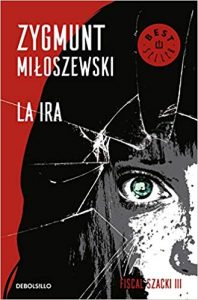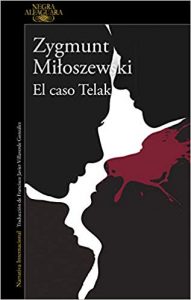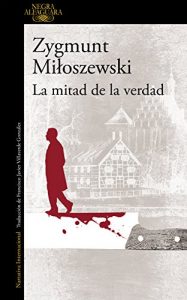The Polish quarry of the black genre focuses all its energy on a Zygmunt Miloszewski Under whose saga of prosecutor Teodor Szacki he immediately made his way through a world of the genre that received him with open arms. The beginnings of the once journalist Zygmunt They seemed to guide him to a narrative more typical of mystery (I think his novels from these beginnings have not reached Spain until today).
Except that its darker setting soon led to other more prosaic enigmas that surround crime, the criminal psyche, the human soul and its dense labyrinths. Come on, what is composing any thriller in which the investigation always advances on a tightrope.
His fetish character so far is the long-suffering prosecutor Szacki, sometimes lost among the most ominous corners of Warsaw, where memory fades until the next and most painful awakening. The success in the adequacy of his thematic register and the selection of Szacki is evident in light of his international leap to a diversity of countries.
And as it is always interesting to know how evil is outlined in different scenarios, the Miloszewski's Poland and specifically the most beautiful Warsaw brushstroke of dark tones by the author and with his romantic tail flicks, they perfectly serve the cause of a captivating narrative. welcome to a new shared between Miloszewski and good old Szacki. You will end up discovering that you were completely right when approaching one of his books.
Top 3 recommended novels of Zygmunt Miloszewski
The wrath
Third part of the saga. There is nothing better to catch in the reading of a crime novel than to introduce ourselves to some protagonists in charge of doing good who move on the tightrope of their personal circumstances.
Because we can all know a lot about that, about the fragility with which we sometimes face evil in any of its representations... Teodor Szacki is not the prototype of an investigator tortured by his past and who moves dangerously between the friendly side of the world and his intricate underlying mechanism, almost always handed over to sordid interests.
He is a prosecutor and has always been an example in the exercise of his activity, only that at the moment in which this story unfolds, Teodor succumbs to that fragility. Things are not going well for him and it may not be the best time to face a ruthless criminal.
The issue of a woman who suffers abuse points to that strange assumption of routine for which Teodor knows how to act under the usual patterns of defense of the potential victim. But this time something escapes him, it is not only a case of abuse, and the omission of certain details end up favoring a chain of macabre events.
That Teodor is able to link everything will be essential to approach the case properly. The chain of murders that ensue points directly to a criminal mind at its best. And Teodor needs to balance his personal plot to the maximum if he does not want to end up failing miserably, with the deaths under his consciousness of ineffectiveness ...
The Telak case
As the trigger for a series perhaps never thought of as such (only the good reception of a work can ensure its continuity), we find ourselves before an old-fashioned case, with its investigation revolving around suspects gathered in a closed space.
The surroundings of a monastery are responsible for providing that aura of mystery to every building between the historical and the spiritual. Displaced there, several patients concentrate on their particular therapy that is more typical of a sect than of a common treatment.
It is not surprising then that death ends up appearing as part of a more than possible and twisted plan hidden between meetings and confessions. We soon meet who will be the bastion of all the author's black works, the prosecutor Teodor Szacki. And it will be he who will be probing the motives for the murder of so many suspects on the loose.
An impressive and virtuous novel in this exercise of criminal mystery that goes far beyond the easy claim of the theatricalization of murder and the psychopathy or animosity of the criminal on duty. A surprising story and wonderfully constructed from beginning to end.
Half the truth
Who is going to confess everything being able to play with the truths in the dark? The most sinister reality can end up being a perfect construct from which the criminal on duty can emerge unscathed, provisionally linking the loose ends, justifying any act of revenge with the skin of old hatred.
We travel to the small town of Sandomierz, one of the best Polish jewels, steeped in history and suspended in time thanks, paradoxically, to its limited evolution over time. Again one of those perfect settings to confer mystery and a hint of melancholy or decadence, however you want to see it. Like the small town, Prosecutor Szacki finds himself suspended in his time, divorced and searching for himself.
But Sandomierz is about to cease to be the quiet place you would expect. The Jewish community of the place, with the fateful memory of Treblinka, is threatened by some extremely violent attacks, a vengeful hunt that seems to want to pay with the same coin, at least in the minds of those who are capable of such criminal proceeding. .



